Survivor
You've faced skin cancer & share your story to protect others.
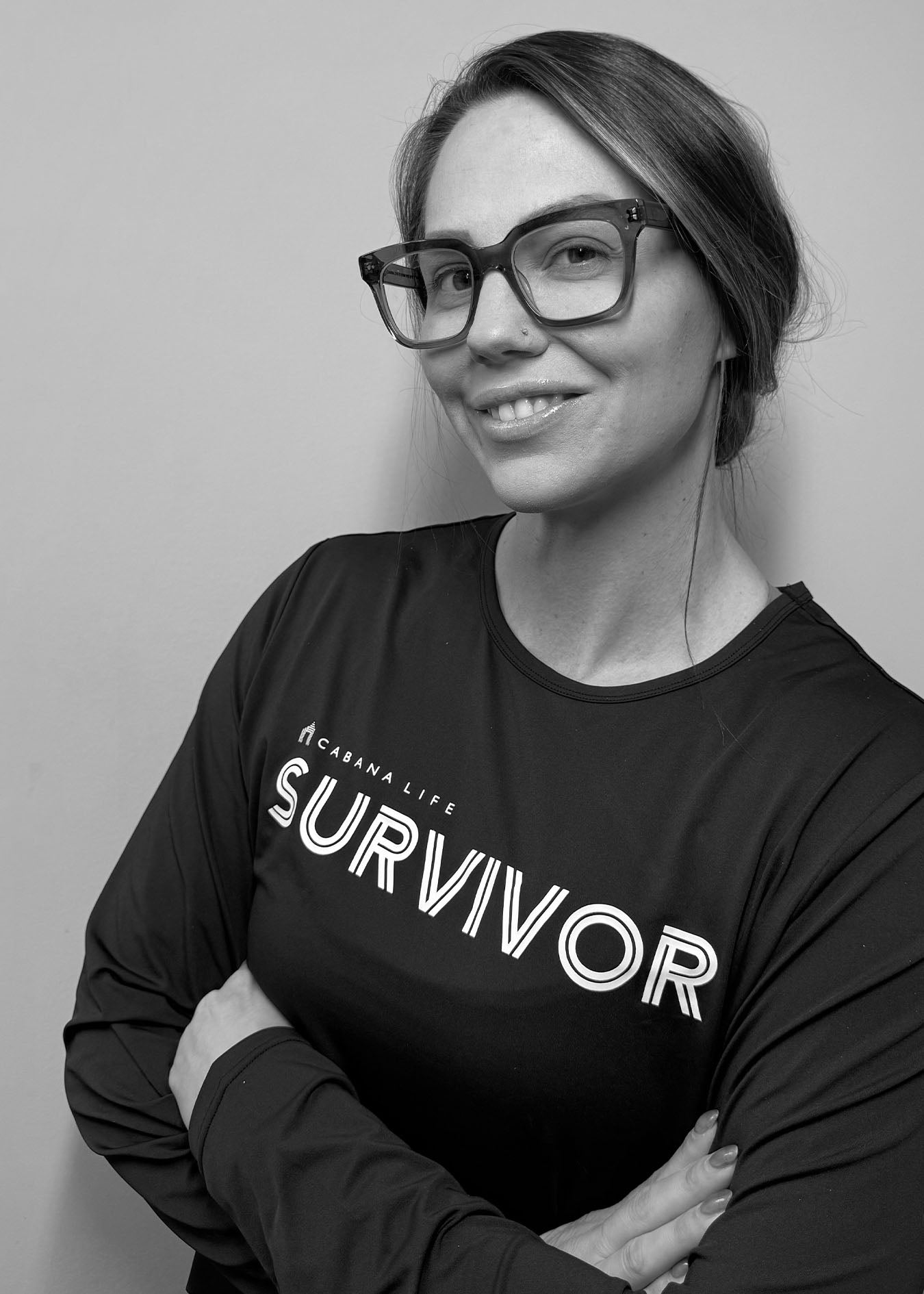
Brandi Corbello
Question: Tell us your story! (How are you either a Survivor, Warrior or Protector)
Answer: I am a Stage IIIC melanoma survivor!
Question: The Hardest Lesson — What’s something about skin cancer you wish you had known earlier?
Answer: Just how serious it is.
Question: A Moment That Changed Everything — Was there a moment that made you realize how serious skin cancer is?
Answer: When I was referred to an oncology attorney.
Question: From Fear to Action — How did your perspective on sun safety and skin health change?
Answer: I started wearing sunscreen and started a sunscreen company myself!
Question: Becoming an Advocate — What drives you to spread awareness, and what message do you hope people take to heart?
Answer: Sunscreen can be safe and does not cause cancer! It is something that can create community and bring so many different people together!
Question: Unexpected Support — Who or what was the biggest source of strength for you during your journey?
Answer: My friends!
Question: If You Could Change One Thing — What’s one sun habit you wish society would completely shift?
Answer: Sunscreen!
Question: Misconceptions — What’s the biggest thing people get wrong about having skin cancer?
Answer: That it’s just skin cancer and it’s not a “real” cancer.
Question: The Impact of a Shirt — When you wear your Cabana Lifeline shirt, what does it symbolize to you?
Answer: It symbolizes all the people we’ve lost and that space we’ve been given to give grace to others.
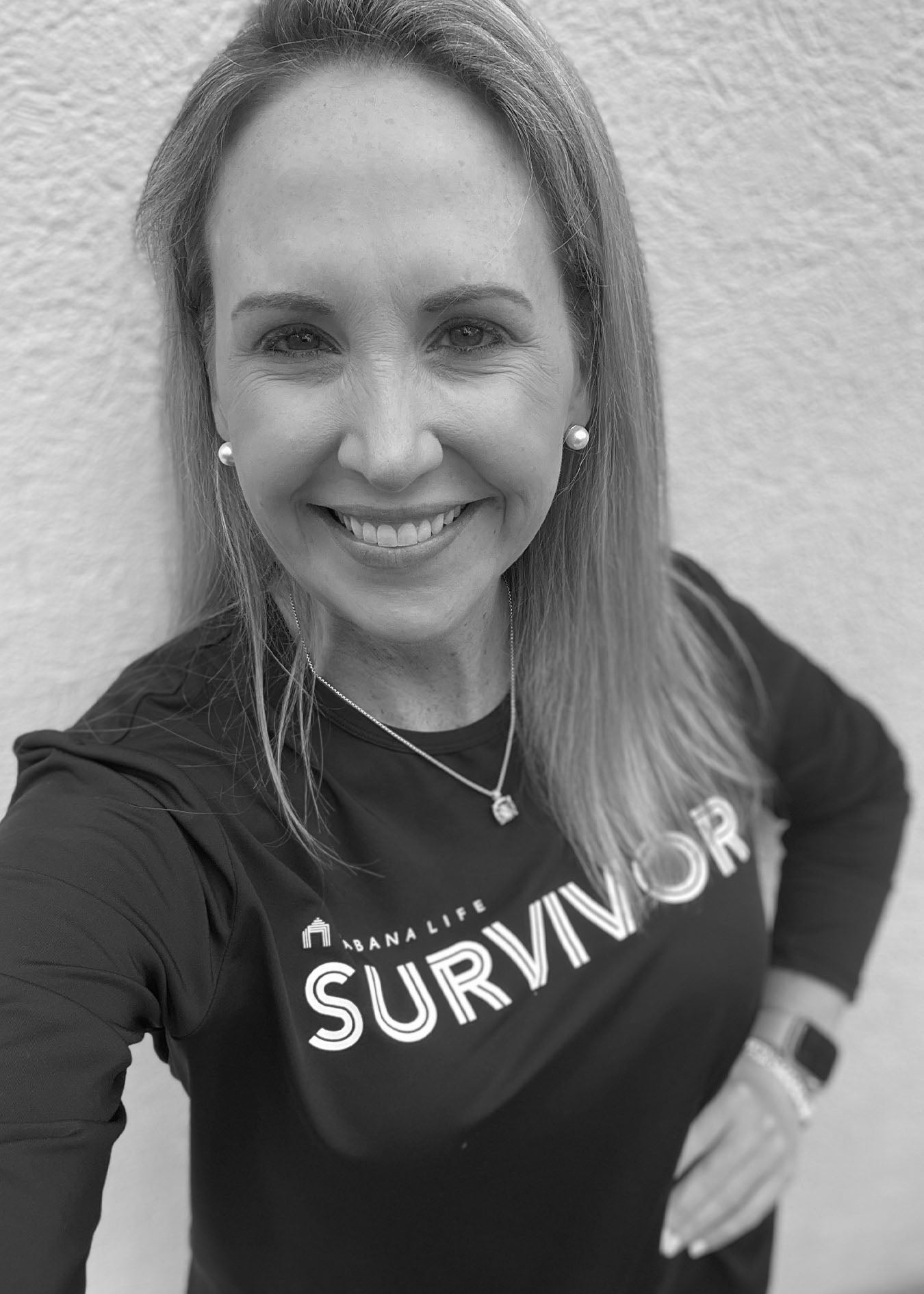
Beaumont Palmer
Question: Tell us your story! (How are you either a Survivor, Warrior or Protector)
Answer: Survivor.
Question: The Hardest Lesson — What’s something about skin cancer you wish you had known earlier?
Answer: Even if you are “covered,” it doesn’t mean you are safe from UV rays.
Question: A Moment That Changed Everything — Was there a moment that made you realize how serious skin cancer is?
Answer: After my 10th surgery, my care team said I would be under every 3-month surveillance for the rest of my life.
Question: From Fear to Action — How did your perspective on sun safety and skin health change?
Answer: There are many cancers that are not preventable and it doesn’t matter what you do — you will still be a victim. For skin cancer and melanoma, most times you can proactively prevent it. Why wouldn’t you control something you have the ability to?
Question: Becoming an Advocate — What drives you to spread awareness, and what message do you hope people take to heart?
Answer: To help people understand that this disease is very unforgiving and cannot be taken lightly. Young, old, fair-skinned, or dark — all are susceptible.
Question: Unexpected Support — Who or what was the biggest source of strength for you during your journey?
Answer: My family. Through all the surgeries and mental hardships, they were my constant.
Question: If You Could Change One Thing — What’s one sun habit you wish society would completely shift?
Answer: Affiliation with “tan” only being beautiful.
Question: Misconceptions — What’s the biggest thing people get wrong about having skin cancer?
Answer: People always assume skin cancers are big and visually offensive. They are not. Also, that you have to have been a sun goddess to end up with cancer — not true.
Question: The Impact of a Shirt — When you wear your Cabana Lifeline shirt, what does it symbolize to you?
Answer: It symbolizes strength and a sense of community of those like me. Each time I wear it, I hope someone asks what it means — or it serves as a reminder to them of how important sun protection is.
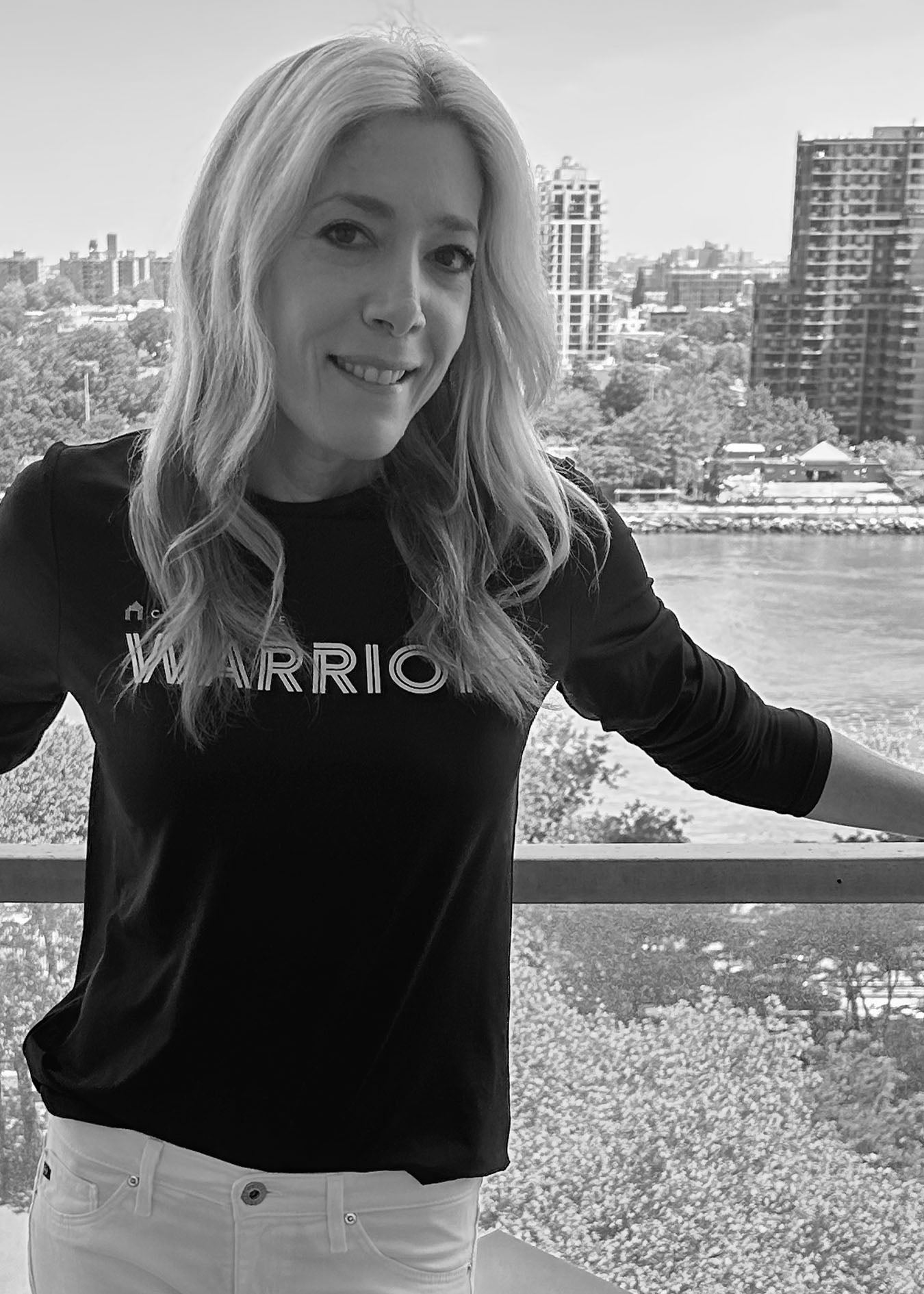
Melissa Breitbart
Question: Tell us your story! (How are you either a Survivor, Warrior or Protector)
Answer: 18 years ago I found a small lump in my neck that many doctors told me was nothing to worry about. The words that came across the phone line would haunt me for years to come: “You have a malignancy,” the doctor said. I fell to the ground sobbing and screaming. My son was only three years old at the time. He was too young to lose his mother.
I was rushed in to surgery where they performed a radical neck dissection and removed 44 lymph nodes from my neck. I had been told the type of cancer I had was curable and treatable. I would soon learn that I had been misdiagnosed and had stage III melanoma. Unaware at the time of how deadly melanoma was, I was initially relieved. I thought, “Melanoma is JUST skin cancer.” Then came the wake-up call. I soon came to understand that there was no cure or treatment at the time for metastatic melanoma. Most people including myself thought that skin cancer was no big deal.
I spoke out, shared my story, and started the Live4Life Foundation (L4L) to raise funds for research and increase awareness about melanoma — how deadly it can be and what can be done to prevent it. I was hopeful that my story could save other people’s lives by teaching them to protect themselves from the sun, protect their children, and let them know they need to get regular skin checks.
Over the past 18 years we have made so much progress, but we need to continue our research until we find an effective cure for melanoma.
Question: The Hardest Lesson — What’s something about skin cancer you wish you had known earlier?
Answer: As vigilant about sun safety as I have been, I was recently diagnosed with squamous cell carcinoma on my nose and my forehead. Although it is not melanoma, I am still traumatized.
Question: A Moment That Changed Everything — Was there a moment that made you realize how serious skin cancer is?
Answer: When I learned that there was no treatment or cure for stage 3 melanoma and there was a real chance I would not survive.
Question: From Fear to Action — How did your perspective on sun safety and skin health change?
Answer: I was so young when I was diagnosed and felt as though I had an obligation to advocate, educate, and raise funds to help find a treatment and cure for the disease.
Question: Becoming an Advocate — What drives you to spread awareness, and what message do you hope people take to heart?
Answer: Skin cancer is not to be dismissed.
Question: Unexpected Support — Who or what was the biggest source of strength for you during your journey?
Answer: My son was my greatest source of strength. He was only 3 when I was diagnosed. I knew I had to fight to live for him. That is part of the reason I started the Live4Life Foundation.
Question: If You Could Change One Thing — What’s one sun habit you wish society would completely shift?
Answer: Stop associating the sun and being tan as healthy.
Question: Misconceptions — What’s the biggest thing people get wrong about having skin cancer?
Answer: It’s no big deal.
Question: The Impact of a Shirt — When you wear your Cabana Lifeline shirt, what does it symbolize to you?
Answer: Empowerment.
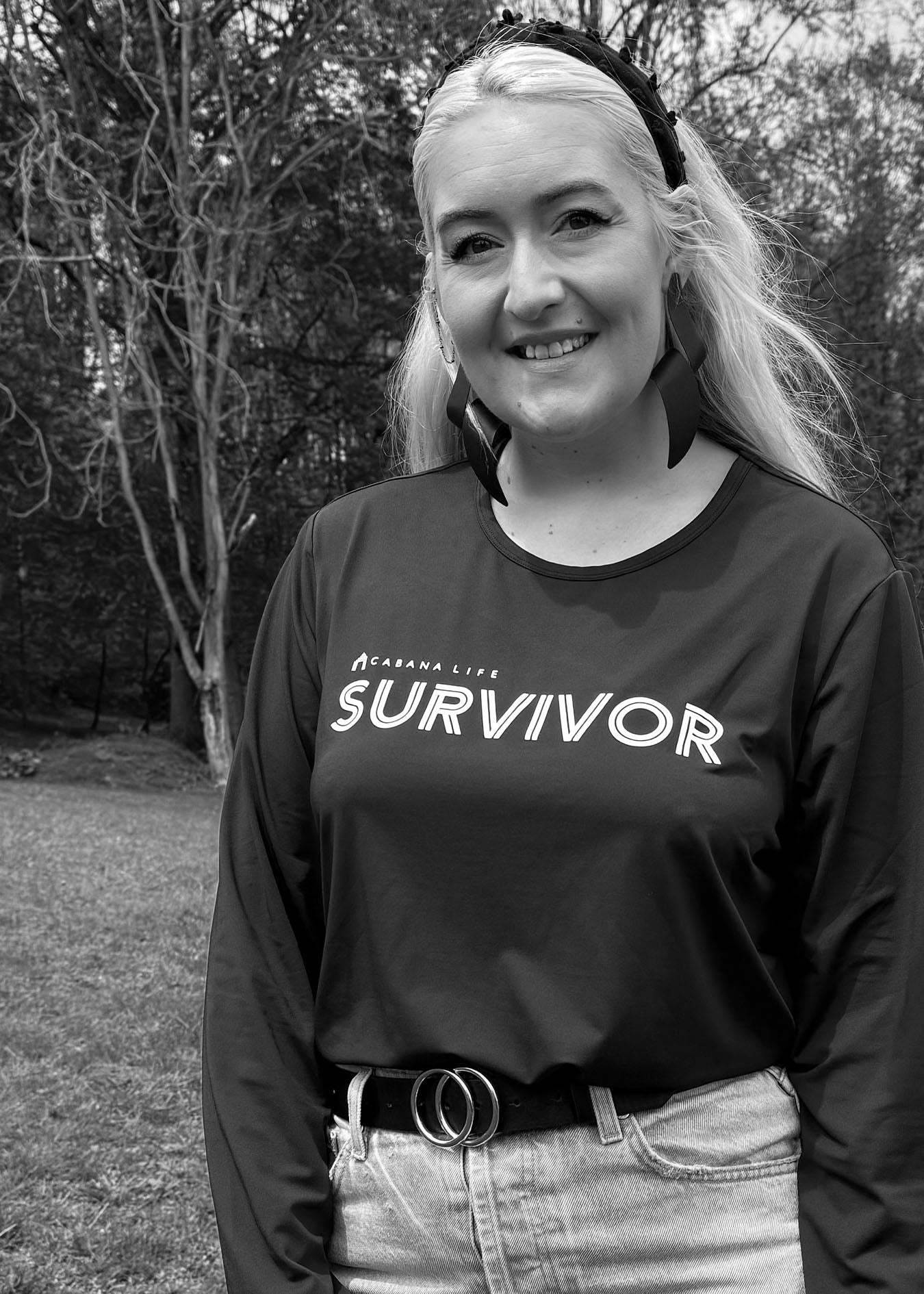
Brittanny Groover
Question: Tell us your story! (How are you either a Survivor, Warrior or Protector)
Answer: At the age of 27, I was diagnosed with stage 3A melanoma after noticing a mole on my shin that began to grow, change in size, color, shape, and diameter, and become dry and patchy. This was in 2021, during the peak of the pandemic. Before my diagnosis, I didn’t live a sun-safe life — quite the opposite. I was addicted to tanning, whether it was outdoors under the sun or in tanning beds.
My blue sun chair in my backyard became a symbol of this obsession, a staple in my small Pennsylvania hometown. Every summer, I would set my alarm for 8 a.m., cover myself in suntan accelerators, and spend hours lying on that chair. I made tanning a daily ritual to achieve the deepest, golden tan. In my town, I was known for my beautiful bronze glow. But what I didn’t realize was that my pursuit of “beauty” was putting my health at grave risk.
That year was one of the most challenging of my life. I had to undergo Keytruda immunotherapy — 18 treatments every three weeks. At the same time, my son was starting 1st grade while I was fighting for my life. My partner, Myrl, who has been by my side since I was 17, struggled with the fear of losing me. The idea of becoming a single parent turned his world upside down. Through it all, we held on to love and hope as we navigated this incredibly difficult time together.
Question: The Hardest Lesson — What’s something about skin cancer you wish you had known earlier?
I underestimated the risks. I thought skin cancer wouldn’t happen to me — or if it did, I’d just have a mole removed. I didn’t understand how deadly melanoma is. A mole can become a tumor and spread internally. Looking back, I now understand beauty isn’t worth risking your life. I share my story in hopes of reaching someone who’s not taking sun protection seriously. Sunscreen and sun safety aren’t optional — they’re lifesaving.
Question: A Moment That Changed Everything — Was there a moment that made you realize how serious skin cancer is?
Answer: The moment I truly grasped how serious skin cancer is came when my normal life was taken away from me. In 2021, I had multiple surgeries in one day and left the hospital with a 3-inch by 4-inch wound on my shin. The healing process took nearly six months.
I had to use a wheelchair during grocery trips. Fluids ran down my leg as my skin graft — taken from my groin — struggled to heal. When I began treatment at age 27, sitting in the cancer center made it all real. I was fighting for my life, and it was terrifying — but it gave me the strength to push forward.
Question: From Fear to Action — How did your perspective on sun safety and skin health change?
Answer: I finally woke up and realized everything I thought I knew about the sun was wrong. I used to worship the sun. Being a summer baby and a Leo, sunny days were my favorite memories. But the sun — something I once adored — is also what caused my cancer.
Now I love the sun with caution. That means sunscreen, protective clothing, and limits. What once made me feel beautiful was damaging my skin. Understanding this saved my life, and I hope it saves others too.
Question: Becoming an Advocate — What drives you to spread awareness, and what message do you hope people take to heart?
Answer: My drive to advocate comes from losing my father to MS and being forced to trust doctors again after my own diagnosis. I now share my story through media, Congress, and social platforms to help others. If I convince even one person to wear sunscreen, I’ve done my job.
Spreading awareness is healing. It helps me process trauma, contribute to the world, and change lives.
Question: Unexpected Support — Who or what was the biggest source of strength for you during your journey?
Answer: My strength came from within — from losing my dad and everything that shaped me. But my partner Myrl, my family, and friends were anchors.
And social media — being diagnosed during a pandemic meant going through treatment alone. Myrl waited outside during every procedure. Social media became my community and connection when I needed it most.
Question: If You Could Change One Thing — What’s one sun habit you wish society would completely shift?
Answer: Stop placing so much emphasis on the idea that tan skin equals beauty. Every skin tone is beautiful just as it is.
Question: Misconceptions — What’s the biggest thing people get wrong about having skin cancer?
Answer: Two big myths: that sunscreen causes cancer (false), and that skin cancer isn’t serious. Melanoma is life-threatening. You don’t just “have it removed” — it changes everything.
Question: The Impact of a Shirt — When you wear your Cabana Lifeline shirt, what does it symbolize to you?
Answer: It symbolizes the motto I live by: the only way we fight skin cancer is together.
It’s not about hiding from the sun — it’s about making smart choices: UPF clothing, sunscreen, shade. These small actions save skin and lives. Wearing this shirt is a statement of unity, truth, and the power of awareness.
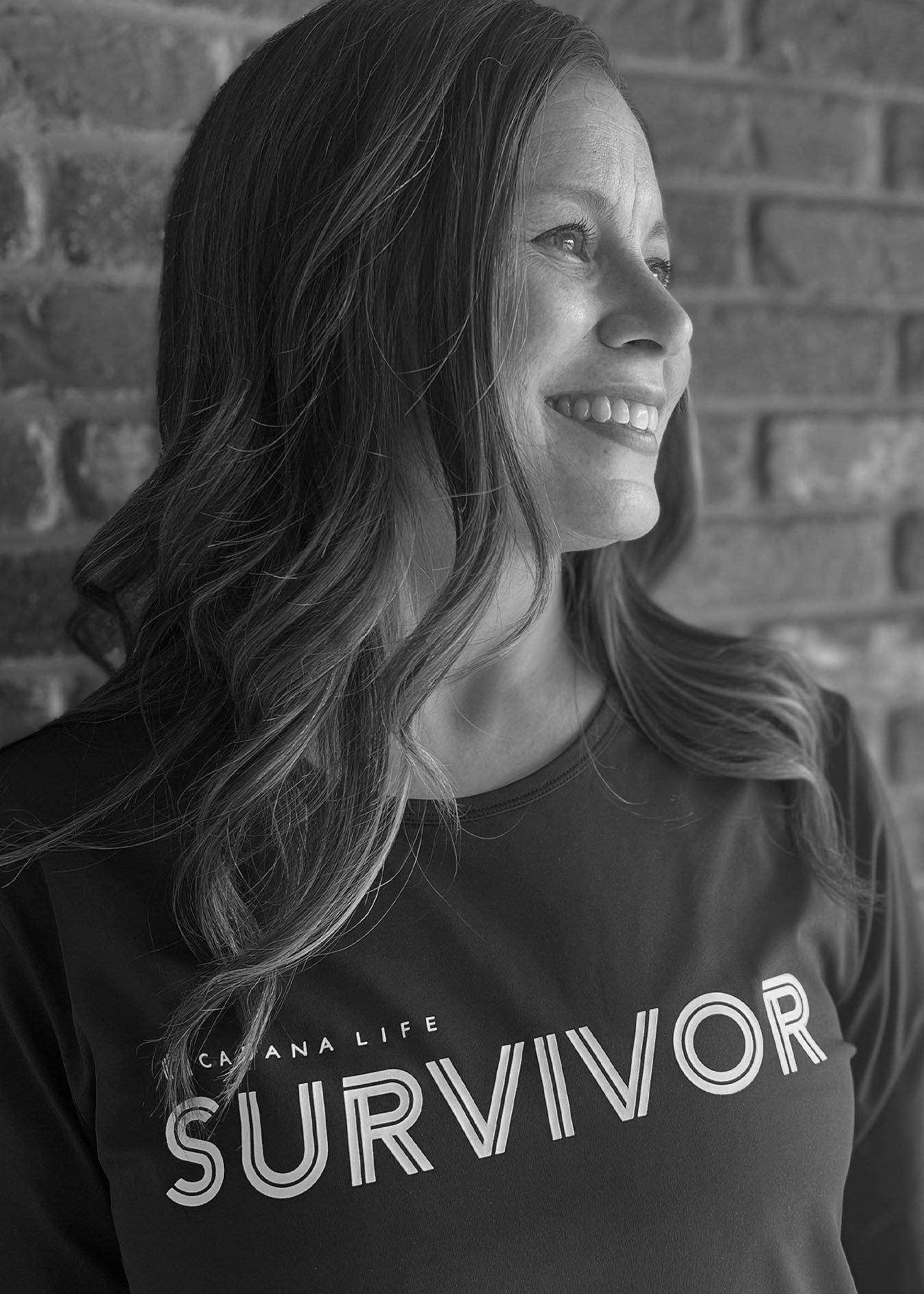
Stacey Sepp
Question: Tell us your story! (How are you either a Survivor, Warrior or Protector)
Answer: In 2015, I had a freckle on my right shoulder that changed shape during my pregnancy and my doctor encouraged me to get it checked out. A dermatologist biopsied it and it came back benign. Over the next few years, the scar from the biopsy evolved and became red, raised, and painful. In May 2020, I had that area checked out and biopsied again — this time, it came back as melanoma. I was shocked.
I had a wide local excision and sentinel node biopsy in June 2020 and was formally diagnosed with Stage 2B high-risk melanoma. At that time, treatment meant regular skin checks and CT scans. A year later, a routine scan revealed that the cancer had spread to my thyroid and lung — now I was Stage 4.
I joined a clinical trial and began combination ipi/nivo immunotherapy. Thankfully, I had an excellent response, and since March 2022, I have had no evidence of active disease. I’m incredibly grateful for my medical team and the research that made this treatment possible. Now, I focus on advocacy, education, and awareness for the melanoma community.
Question: The Hardest Lesson — What’s something about skin cancer you wish you had known earlier?
Answer: I wish I had known that regardless of your racial and ethnic background, you can still be at risk for skin cancer, including melanoma! I am Latina and Filipina and my skin would tan after time in the sun. I wish I had known the price I would pay in my 40s for all those years of UV exposure. It's NOT worth it.
Question: A Moment That Changed Everything — Was there a moment that made you realize how serious skin cancer is?
Answer: That moment was when I realized that with ANY melanoma diagnosis, even in early stages, there is a risk of recurrence and metastasis. That’s exactly what happened in my case. Skin cancer isn’t “just skin cancer.”
Question: From Fear to Action — How did your perspective on sun safety and skin health change?
Answer: My perspective has completely changed! I wear sunscreen every day of the year. When outdoors, I wear sun-protective clothing, sunglasses, and hats. I also encourage friends and family to do the same — and to get yearly skin checks with a dermatologist.
Question: Becoming an Advocate — What drives you to spread awareness, and what message do you hope people take to heart?
Answer: About 50% of patients with advanced melanoma don’t respond to current treatments — and we don’t fully know why yet. Continued research is critical. I’m alive today because of past research, so I advocate to ensure more effective treatments exist for *everyone*.
Question: Unexpected Support — Who or what was the biggest source of strength for you during your journey?
Answer: My family and friends have been amazing, but the game changer was finding other melanoma survivors on social media. Seeing other women my age not just surviving but thriving gave me the strength to believe I could too.
Question: If You Could Change One Thing — What’s one sun habit you wish society would completely shift?
Answer: I wish we could shift the idea that tan = healthy or beautiful. Tan skin is actually sun-damaged skin. Protecting your skin is what’s truly healthy — and we need to normalize that.
Question: Misconceptions — What’s the biggest thing people get wrong about having skin cancer?
Answer: Most people think melanoma is just skin cancer. In reality, it can spread and become deadly. The fight often begins *after* surgery, not ends. Like other cancers, prevention is key — wear sunscreen, use sun-protective clothing, and get annual skin checks.
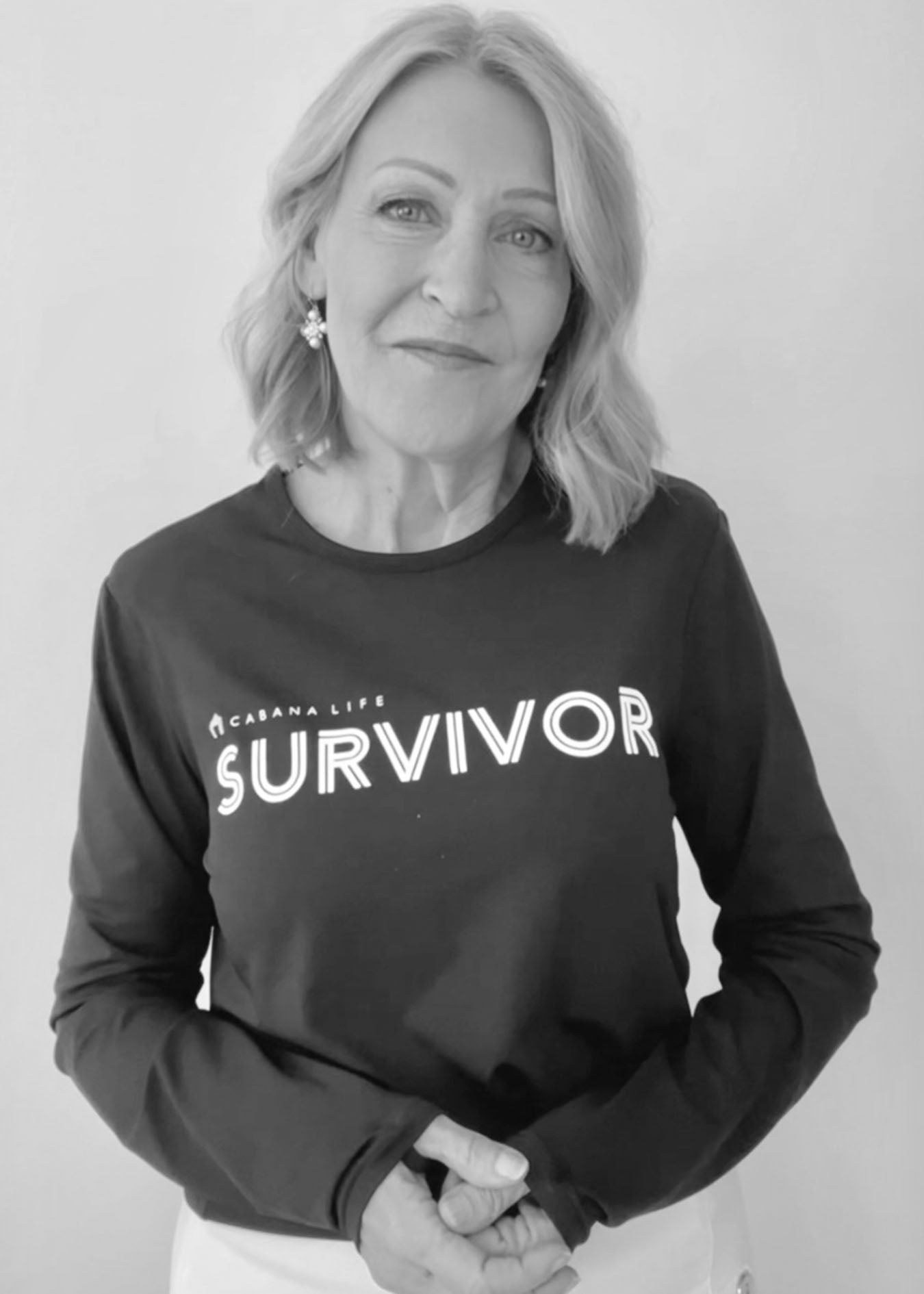
Mary Alice Myers
Question: Tell us your story! (How are you either a Survivor, Warrior or Protector)
Answer: I was diagnosed with malignant melanoma 24 years ago. My doctor saw a very tiny black mole during a routine skin check. She performed an excision and said it was probably nothing to worry about and they would call me with the results. Those results came in while I was in a fitting room trying on spring clothes!
My doctor reassured me not to panic but told me to call and schedule the surgery ASAP. I hung up, cried, got dressed (new clothes suddenly weren’t a priority anymore), and went home to call the surgeon. I was very, very lucky — the excision was successful and my margins were clear. I now get regular skin checks and have had a few questionable spots removed since then, all of which have fortunately been benign.
Question: The Hardest Lesson — What’s something about skin cancer you wish you had known earlier?
Answer: How dangerous it can be and how extremely important sunscreen is! I didn't realize it can appear in areas that aren't even exposed to the sun — like the bottoms of your feet, your butt cheeks, your eyes, or under your fingernails!
Using sunscreen and wearing protective clothing on exposed areas is protecting your entire body from developing melanoma. I wasn’t aware, at the time of my diagnosis, that melanoma can spread to other areas if not caught early.
Question: A Moment That Changed Everything — Was there a moment that made you realize how serious skin cancer is?
Answer: Yes — when I was told I needed to come back for surgery to remove a larger portion of my shin. I was also informed how serious it would be if the margins weren’t clear and the cancer had spread. That was a tough conversation, and it made me realize just how naive I was about skin cancer.
Question: From Fear to Action — How did your perspective on sun safety and skin health change?
Answer: I wish I knew then what I know now. I grew up in a generation of baby oil, hours in the sun, chasing the best tan, and using tanning beds. I’m fair-skinned, blonde, and blue-eyed — I did everything wrong for many years.
Now I respect the sun, use sunscreen and sun-protective clothing, avoid sun during peak hours, and have yearly or bi-yearly skin checks. It’s of utmost importance.
Question: Becoming an Advocate — What drives you to spread awareness, and what message do you hope people take to heart?
Answer: It’s a very scary diagnosis, and if I can stop one person from hearing those words, that’s a win. It can affect anyone, regardless of your skin tone. Use skin protection.
Question: Unexpected Support — Who or what was the biggest source of strength for you during your journey?
Answer: My strength came from my family, even though they didn’t realize it at the time. I needed to stay healthy and positive for them as well as for myself. I followed all the doctor’s instructions and read everything I was given.
My cancer was on my left shin and I had a large bandage on it. Whenever someone asked what happened, I told them — and reminded them to use sunscreen and be smart in the sun.
Question: If You Could Change One Thing — What’s one sun habit you wish society would completely shift?
Answer: I think awareness is shifting already. I see parents being more diligent, making sure their kids wear sunscreen and sun hats. I love that phones now show the UV Index. And companies like Cabana Life are making beautiful sun-protective clothing available to all of us.
Question: Misconceptions — What’s the biggest thing people get wrong about having skin cancer?
Answer: I’ve heard people say, “Oh, I just had skin cancer removed — not a big deal. Everyone has it these days.” Don’t be naive. Take it seriously. Respect the sun. Use sun protection. Make your skin health a priority. Skin cancer is very serious.
Question: The Impact of a Shirt — When you wear your Cabana Lifeline shirt, what does it symbolize to you?
Answer: It’s a reminder — not to take your life for granted. Skin cancer doesn’t discriminate. It can hit anyone. Cabana Life’s t-shirts WILL make an impact. If wearing these shirts saves a few lives or prevents someone from going through a skin cancer scare, we’re doing our job.
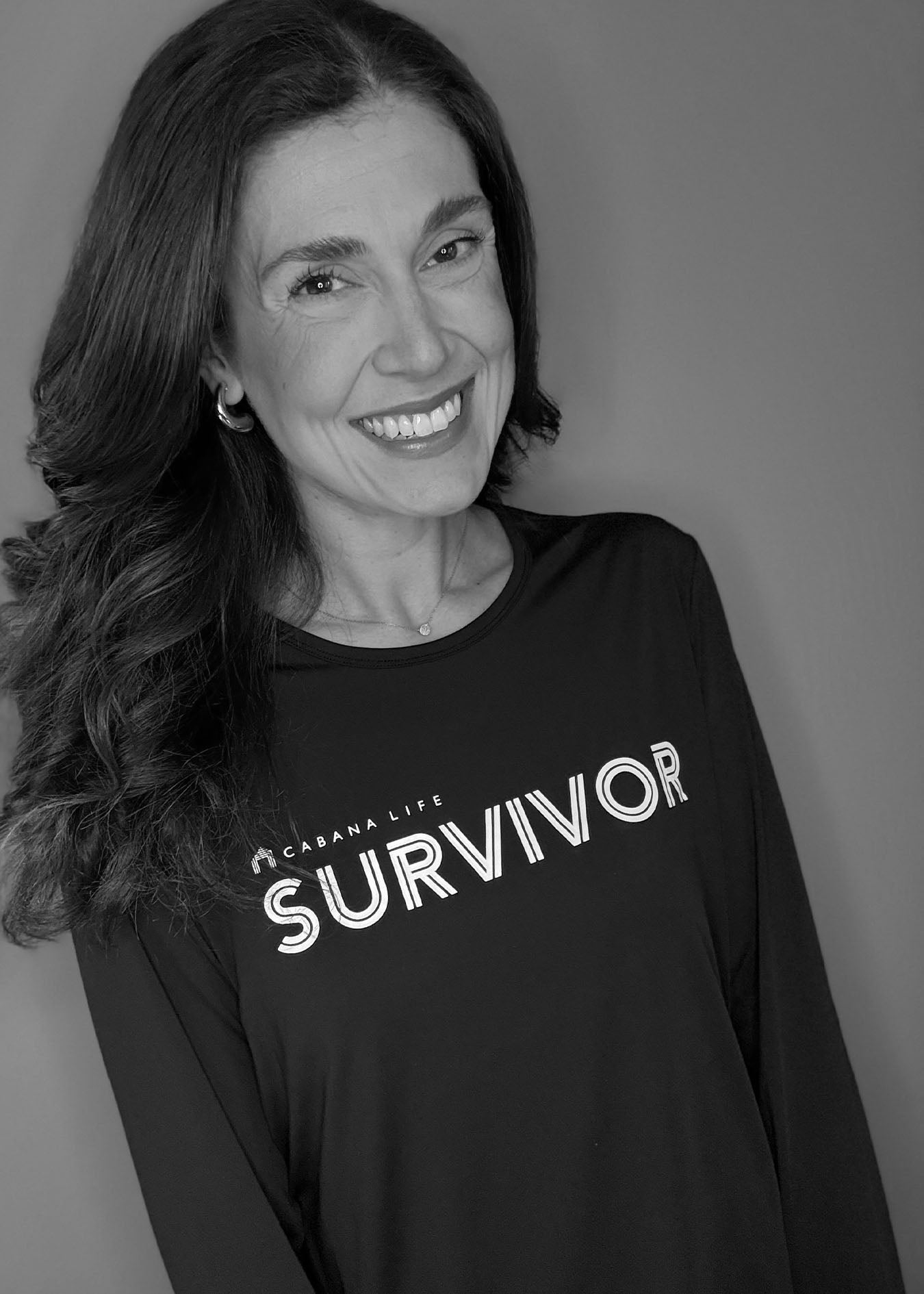
Leah Adams
Question: Tell us your story! (How are you either a Survivor, Warrior or Protector)
Answer: I am all three — a Survivor, a Warrior, and a Protector of melanoma. Here’s why:
• Survivor – I’ve personally faced melanoma, gone through the physical and emotional toll of diagnosis and treatment, and reached my five-year cancer-free milestone — an incredible testament to my strength and resilience.
• Warrior – I continue to carry the weight of my journey, not just in my body but in my heart. I live with the long-term impacts, advocate fiercely, and push forward through every challenge — whether it’s chronic pain, emotional triggers, or the daily mental battle that comes with survivorship.
• Protector – I’ve turned my experience into purpose. Through my Instagram, advocacy, speaking engagements, partnerships with sun safety brands, and work with organizations, I actively protect others. I’m educating, empowering, and saving lives by helping people prevent what I’ve been through.
Question: The Hardest Lesson — What’s something about skin cancer you wish you had known earlier?
Answer: I wish I had known that skin cancer isn’t “just skin cancer.”
It’s not always a quick removal or an easy fix.
It can be deadly.
It can come back.
It can leave scars — physical and emotional.
And it can change your entire life.
I wish I had known that one bad sunburn, one tanning bed session, one moment of not caring could have consequences years later.
But now I do know. And I’m doing everything I can to make sure you know too.
Question: A Moment That Changed Everything — Was there a moment that made you realize how serious skin cancer is?
Answer: The moment I was told “you have melanoma” changed everything.
Before that, skin cancer felt distant — something that happened to other people.
But in that instant, it became real. Serious. Life-altering.
Hearing the word melanoma wasn’t just a diagnosis. It was fear. It was uncertainty. It was a wake-up call.
That was the moment I realized this wasn’t “just skin cancer” — this was something that could take my life if I didn’t fight for it.
Question: From Fear to Action — How did your perspective on sun safety and skin health change?
Answer: Before my diagnosis, sun safety was more of an afterthought. I didn’t realize how much damage could be done by a single sunburn or a few minutes of unprotected exposure. But melanoma changed everything.
Now, sun safety and skin health are at the core of my daily life. I wear UPF50+ clothing, reapply sunscreen religiously, avoid tanning at all costs, and prioritize regular skin checks. It’s not about vanity or beauty — it’s about survival.
I’ve seen firsthand how serious skin cancer can be, and I’ve made it my mission to protect myself — and to help others do the same.
Question: Becoming an Advocate — What drives you to spread awareness, and what message do you hope people take to heart?
Answer: What drives me to spread awareness is simple: I don’t want anyone else to go through what I did — or what my dad did. Melanoma changed my life forever, and I’ve seen its impact up close, both as a survivor and as a daughter.
I speak out, advocate, and educate because this cancer is preventable. Because your skin — and your life — are worth protecting.
The message I hope people take to heart is this:
Your choices today matter.
Wear the sunscreen. Skip the tanning bed. Get your skin checked.
Don’t wait for a diagnosis to start caring.
If I can help even one person avoid this fight, then every post, every conversation, every ounce of advocacy is worth it.
Question: Unexpected Support — Who or what was the biggest source of strength for you during your journey?
Answer: My biggest source of strength during my melanoma journey was my dad. He fought stage IV metastatic melanoma with everything he had, and even in his hardest moments, he showed me what true courage and resilience look like.
His strength became my strength. His fight fueled mine. He’s still here today and stable because of research and advancements in treatment, so I carry him with me in every step I take — especially in my advocacy.
I also draw strength from the melanoma community, from fellow survivors, and from the mission I’ve embraced: to protect others, raise awareness, and honor those we’ve lost by fighting for change.
Question: If You Could Change One Thing — What’s one sun habit you wish society would completely shift?
Answer: One sun habit I wish society would completely shift? The idea that a tan is healthy or beautiful.
We’ve been conditioned to believe that bronzed skin equals beauty, confidence, and vitality — but the truth is, a tan is a sign of skin damage. It’s your body crying out that your DNA has been harmed.
I wish we could replace that outdated beauty standard with one that values protection, celebrates natural skin tones, and understands that true confidence comes from taking care of yourself — not risking your health for a fleeting glow.
Question: Misconceptions — What’s the biggest thing people get wrong about having skin cancer?
Answer: They think it’s no big deal.
That it’s “just a mole,” a quick removal, a couple stitches, and then you move on.
But the truth is, skin cancer can be deadly — especially melanoma. It’s not always visible. It can spread silently. It can come back. It can take your peace, your confidence, your time, and in some cases, your life.
People don’t realize the emotional weight — the anxiety before every skin check, the fear of recurrence, the scars you carry both outside and in.
Skin cancer isn’t “the easy cancer.” It’s real. It’s serious. And it deserves to be taken seriously.
Question: The Impact of a Shirt — When you wear your Cabana Lifeline shirt, what does it symbolize to you?
Answer: When I wear my Cabana Lifeline shirt, it’s a proud honor to know I’m still here after melanoma — working with a brand that has a powerful mission that I align with around sun protection and living your life after melanoma.
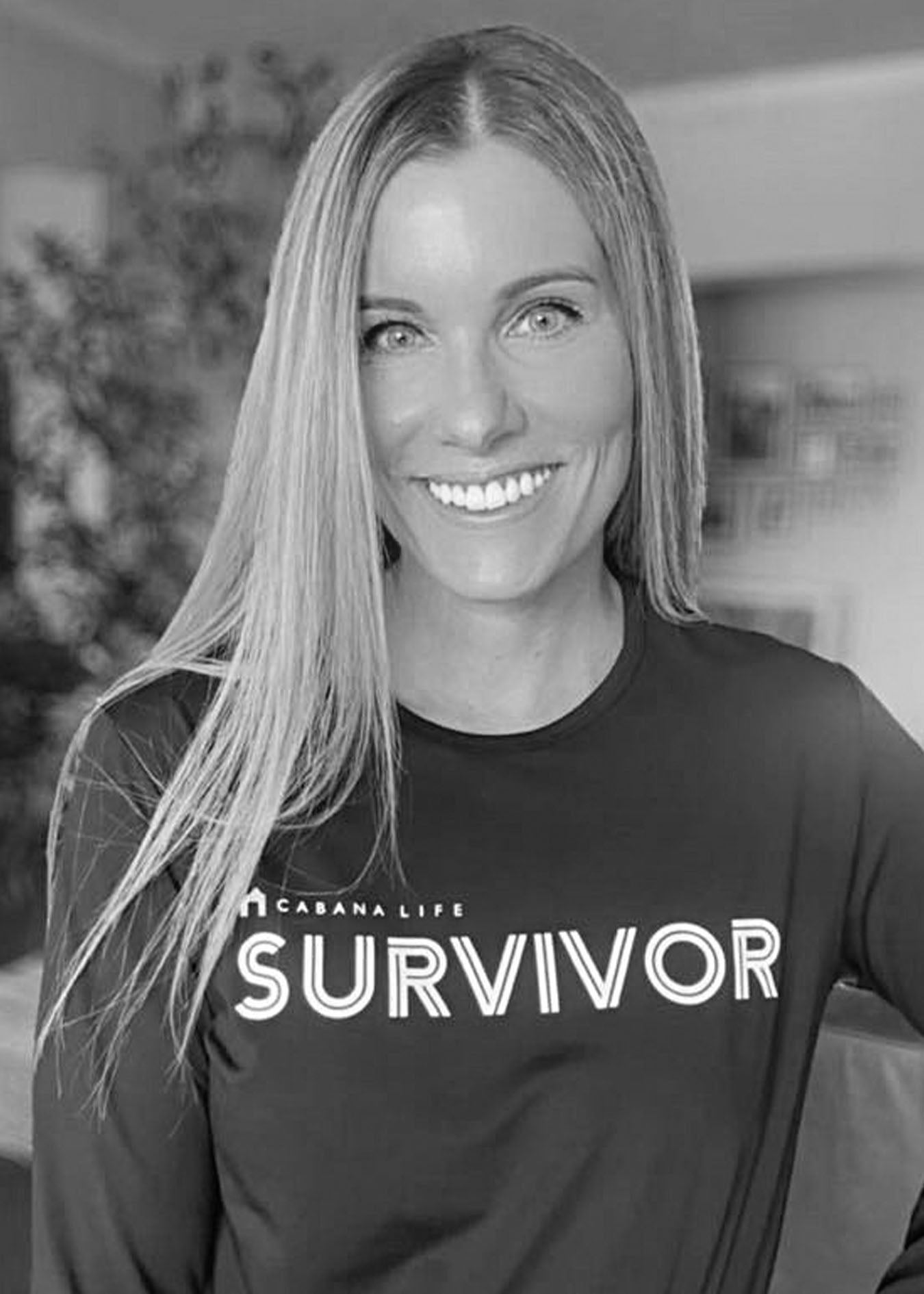
Brianna Raridon
Question: Tell us your story! (How are you either a Survivor, Warrior or Protector)
Answer: I was diagnosed with melanoma at the age of 20 and since then have been diagnosed with melanoma 15 times, ranging between stage 0/in situ to stage 1b — along with many other dysplastic nevi removed. My doctors have said I'm a champ at making thin melanomas! Not a title I ever wished to hold, lol.
It seems to be a family affair, as both of my sisters and my dad have all had melanoma as well. I didn't talk about my melanoma for many years and tried to hide my scars, but I have since realized there is so much more power in sharing my story and educating others. That is what I focus on now — helping others navigate their own melanoma journeys and educating people on the importance of sun safety and skin checks.
Question: The Hardest Lesson — What’s something about skin cancer you wish you had known earlier?
Answer: How important proactive protection is, as damage is cumulative!
Question: A Moment That Changed Everything — Was there a moment that made you realize how serious skin cancer is?
Answer: When I received my Stage 1b diagnosis. It was the first time I had to be put under anesthesia for melanoma, and my first SLNB (sentinel lymph node biopsy) surgery.
Question: From Fear to Action — How did your perspective on sun safety and skin health change?
Answer: I realized that I may not be able to change what damage I had already done, but I can use my experience to educate my kids, family, and friends. Genetics plays a role in my melanoma, so I may not be able to totally control it, but I can take steps to protect myself the best I can.
Question: Becoming an Advocate — What drives you to spread awareness, and what message do you hope people take to heart?
Answer: When I was diagnosed at 20, I didn't have any online resources to help me navigate things or educate me on the dangers. I kept living life with minimal changes. My hope is to be that resource I wish I had, and to proactively educate others on the things they can do to protect themselves. I hope the main message others take away is how important it is to protect your skin, get your skin checked, and to take skin cancer seriously — it’s not "the good cancer."
Question: Unexpected Support — Who or what was the biggest source of strength for you during your journey?
Answer: My sisters and dad. It is so helpful to have someone else who truly understands what you're going through. I try to have this same connection with others who may not have the same situation.
Question: If You Could Change One Thing — What’s one sun habit you wish society would completely shift?
Answer: Glorifying tanning!
Question: Misconceptions — What’s the biggest thing people get wrong about having skin cancer?
Answer: A lot of people think you can just "cut it out," and while that may be the case in a lot of early diagnoses, patients are still left with the fear of it returning and metastasizing.
Question: The Impact of a Shirt — When you wear your Cabana Lifeline shirt, what does it symbolize to you?
Answer: It honors my story and journey, and opens the door to educate others on what that has looked like. Not only surviving, but thriving.
